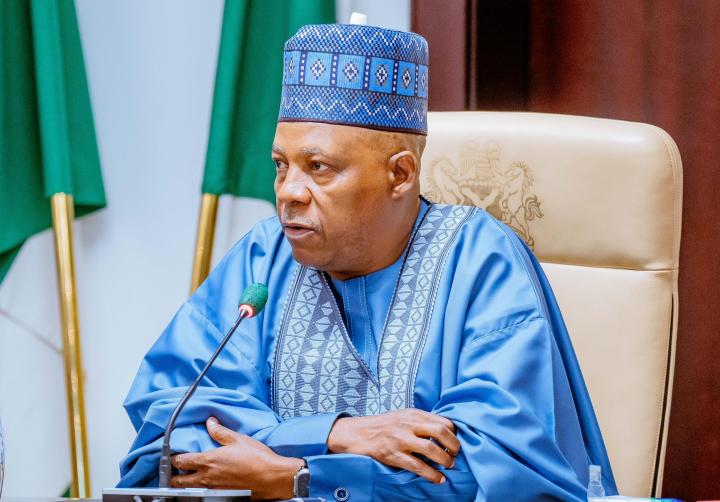Vice President Kashim Shettima has called on the Rural Electrification Agency (REA) to intensify its efforts to fast-track Nigeria’s journey towards universal electricity access.
In a clear message of support, Shettima granted the REA’s request to collaborate with the National Economic Council (NEC), enabling the agency to engage state governors more effectively in the nationwide electrification drive.
During a meeting with the REA delegation, led by its Managing Director and CEO, Abba Abubakar Aliyu, at the Presidential Villa in Abuja, Shettima expressed his strong backing for the agency’s initiatives.

The REA’s presentation focused on the National Electrification and Implementation Plan (NESIP), which outlines strategies to enhance electricity access across rural Nigeria.
Highlighting the critical link between electricity access and financial inclusion, Shettima stated, “The most striking revelation from your presentation is the strong correlation between access to electricity and financial inclusion.
This underscores the importance of our work and the urgency with which we must proceed.”
The Vice President, who also serves as the Chairman of the NEC, assured the REA of the Council’s unwavering support and stressed the need for the agency to “think outside the box” and “think big” in its approach.
He emphasised that meeting the aspirations of Nigerians for reliable electricity is not just a priority but a necessity for the country’s development.
Shettima also highlighted a significant development for the REA—the securing of a $750 million grant from the World Bank and the African Development Bank (AfDB).
This substantial funding will be channelled into various rural electrification projects across the country, aiming to provide more communities with access to electricity.
Despite the commendable work being done by the REA, Shettima noted a critical area where the agency has fallen short: public awareness.
He criticised the agency for its lack of effective publicity, which has left many Nigerians unaware of the ongoing efforts to address the country’s electricity deficit.
“I appreciate the work you are doing,” Shettima remarked, “but you need to overhaul your public relations strategy.
Nigerians need to know about the progress being made.”
Citing an example from his home state of Borno, Shettima recalled how the state was previously receiving a mere 5 megawatts from the national grid. In contrast, a single plant is now generating 12 megawatts for the University of Maiduguri and its Teaching Hospital.
However, this achievement has gone largely unnoticed due to the REA’s inadequate media presence.
Shettima urged the agency to enhance its communication efforts, particularly on social media and traditional media platforms, to ensure that the public is well-informed about the advancements being made in rural electrification.
“Your achievements need to be publicised more vigorously,” he stressed, advising the REA to review its media strategy and ensure that its success stories reach a wider audience.
The Vice President’s remarks reflect a broader concern about the gap between government efforts and public perception.
While significant strides have been made in expanding electricity access, particularly in rural areas, the lack of effective communication has meant that these successes are not widely recognised or appreciated.
This, in turn, can affect public support for ongoing and future initiatives.
In response to Shettima’s call to action, the REA is expected to ramp up its efforts, both in terms of project implementation and public engagement.
The partnership with the NEC is seen as a strategic move that will allow the agency to work more closely with state governments, ensuring that electrification projects are tailored to the specific needs of different regions.
As Nigeria continues to grapple with the challenges of electricity access, particularly in its rural areas, the role of the REA becomes increasingly crucial.
The agency’s ability to deliver on its mandate will not only improve the quality of life for millions of Nigerians but also support the country’s broader economic and social development goals.
In conclusion, Vice President Shettima’s meeting with the REA underscores the importance of collaboration, innovation, and communication in achieving universal electricity access in Nigeria.
With the backing of significant international funding and the support of the NEC, the REA is well-positioned to make substantial progress in the coming years.
However, as Shettima pointed out, the agency must also ensure that its efforts are visible and that Nigerians are kept informed of the strides being made towards a brighter, more electrified future.
Support InfoStride News' Credible Journalism: Only credible journalism can guarantee a fair, accountable and transparent society, including democracy and government. It involves a lot of efforts and money. We need your support. Click here to Donate
